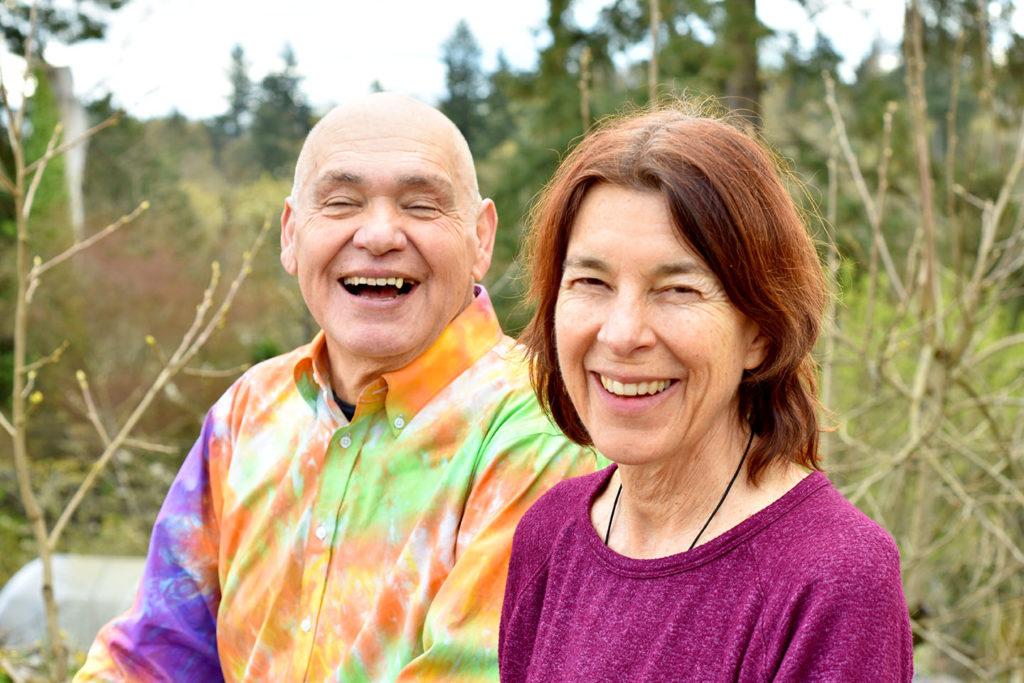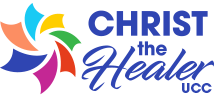About Us
 Our Story
Our Story
In October 1996, Gabrielle and Thomas Chavez sent out 40 invitations to people they thought might be interested in co-creating a new church, dedicated to the imitation of Christ both as assembler of community and practitioner of healing.
Twelve persons showed up for an initial gathering to compare notes on where, when, and how we had each sought and found heaven on earth. Inspired to continue our explorations at least weekly, we’ve been on a fascinating spiritual adventure in community for all the years since.
Many of us were not much, if at all, interested in Christianity, and most had explored a variety of other beliefs and practices. So we asked everyone who showed up, “What treasures have you found in your search for wholeness?”
Co-Creators on this loving journey
From its inception, Christ the Healer has taken shape around the gifts and passions of its members. While in the beginning we lacked a rigid structure and followed the energetic flow, our events are well defined and we are committed to these events to share and grow together in our spiritual paths. We have been known over the years as a drumming church, a Reiki church, a Body Electronics church, a raw foods church, and a radical peace church due to the output of members’ curiosity and activism. While these are practices we embrace and embody, we are simply (and always) a Christ-centered body sharing its gifts.
The container we have created to hold all the diversity is a model of “essential Christianity” with Christ—the perfection of love on earth at the center. With this reference point, we created a circle that could be expanded to incorporate everyone without becoming formless. People are free to move closer to Christ—or not—and still be included in the fullness of community.
“Our first members adapted this poem by Edwin Markham to describe our intention:
He drew a circle that cut me out,
Heretic, rebel, a thing to flout.
But Love and I conspired to win;
We drew a circle that took him in.
Christ the Healer United Church of Christ continuously affirms these principles:
- Openness. As followers of Christ, we cannot imagine limiting questions, defending dogmas, or excluding anyone from anything.
- Acceptance. Again, the reports in the Bible of the life and teachings of Jesus as he understood God weigh heavily towards non-judgment and freedom to learn from mistakes.
- Spirit. Even if people are allergic to what they call “religion,” most consider themselves “spiritual” as part of being human. Certainly we are more than current models of physicality and physics can measure. The terrain of spirit has been mapped by wise seekers over the eons and is available to anyone who wishes. Christ empowers his disciples with spiritual gifts such as healing and miracles; fruits—including love, joy, peace, and self-mastery—and guidance about “discerning the spirits.”
- Metanoia. A Greek word for expanding your mind, unhelpfully translated as “repent” in most English Bibles: “Repent, for the kingdom of God is near.” Jesus is actually inviting us to raise our consciousness, not grovel.
- Embodiment. This important principle has two essential meanings: 1) Don’t just live in your head. Rejoice in being here in a body having all the experiences of physical life, come what may. 2) Though we each have a unique and particular perspective, we are part of a larger whole, not isolated individuals. This means we will find our bliss in aggregate as members of a body.
- Practice. Because our bodies come with pre-loaded genetic software into a perceived threatening environment that shapes both our physical and psychological development, humans are unlikely to evolve beyond being small self-centered egos focused on survival and self-gratification without aspiration and effort. We are capable of learning more by choosing and re-choosing a loving and expanded life. Practice does make a difference.
- Sacrifice. Another scary word that deserves better. It means literally, “to make sacred.” Sacrifice is the deepest and most transformational insight of essential Christianity. It involves giving “up”, not as loss, but as liberation. Persons who practice the magic of self-sacrifice are fearless, powerful, and radically content.
- Help. All kinds of it: the help from fellow humans we know, and so many others whose striving creates fields of possibilities and patterns that inspire and support our aspiration and effort. Our inner guidance, as we learn to discern and trust it. And for those who choose to align with Christ, a powerful, perfected pattern of human potential to follow, a master and friend to call upon in need.
Over the years and through many adventures and folks coming and going, we became a recognized congregation of the United Church of Christ denomination. The roots of the UCC incorporate four streams of Protestant Christianity, both old world and new. Because the denomination grew from separated churches seeking common communion, it carries the energy and intention of aggregating, not splitting, as so many religious groups experience, and thus remains committed to diversity, not creedal lockstep and enforcement of doctrine.
At its best, the United Church of Christ is a “walk together” church, united by a voluntary association of congregations in covenant relationship walking together with each other. Christ the Healer was welcomed into the UCC family to give its gift without being told how to “do church.” We have been grateful for the freedom to explore as well as the wider connection the UCC provides.
Gabrielle Chavez, Pastor, Christ the Healer, UCC
